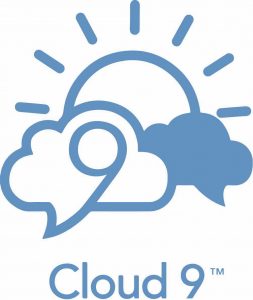Get Involved

 Become a Thought Partner
Become a Thought Partner
Partner with us to produce thought leadership that moves the needle on behavioral healthcare.
 Other options to get involved
Other options to get involved

Thank you!
We received your information and will be in contact soon!
Get Involved

 Grantmaking
Grantmaking
We fund organizations and projects which disrupt our current behavioral health space and create impact at the individual, organizational, and societal levels.
 Participatory Funds
Participatory Funds
Our participatory funds alter traditional grantmaking by shifting power
to impacted communities to direct resources and make funding decisions.
 Special Grant Programs
Special Grant Programs
We build public and private partnerships to administer grant dollars toward targeted programs.
 Program Related Investments
Program Related Investments
We provide funds at below-market interest rates that can be particularly useful to start, grow, or sustain a program, or when results cannot be achieved with grant dollars alone.
Get Involved

 Alyson Ferguson, MPH
Alyson Ferguson, MPH
Chief Operating Officer
Contact Alyson about grantmaking, program related investments, and the paper series.
 Samantha Matlin, PhD
Samantha Matlin, PhD
Senior Learning & Community Impact Consultant
Contact Samantha about program planning and evaluation consulting services.
 Caitlin O'Brien, MPH
Caitlin O'Brien, MPH
Director of Learning & Community Impact
Contact Caitlin about the Community Fund for Immigrant Wellness, the Annual Innovation Award, and trauma-informed programming.
 Joe Pyle, MA
Joe Pyle, MA
President
Contact Joe about partnership opportunities, thought leadership, and the Foundation’s property.
 Bridget Talone, MFA
Bridget Talone, MFA
Grants Manager for Learning and Community Impact
Add some text here
Cloud 9

Program Website
Year:
2017State:
TexasWinner Status:
ApplicantProgram Type:
Access to CareTarget Population:
Providers and CaregiversSetting:
TelehealthProgram Description
Cloud 9 creates technology for psychology. We deliver patient engagement software to improve population mental health. Our enterprise mobile application helps healthcare organizations (i.e., hospitals, community health centers, addiction recovery centers) provide more mental health services to more patients using our unique combination of patient assessments, secure text messaging, video talk therapy, and patient progress tracking. We are also expanding organizations’ ability to deliver care to underserved populations and those with healthcare disparities, through new, innovative care delivery models. Cloud 9 is mission based and everyone on our team has a personal reason for joining this mission. See a brief overview here: https://www.youtube.com/watch?v=eTGKZyengdg
Creativity
Our platform’s technology features are original and require ingenuity to create. Patient-facing applications are useless if the patients do not use them. This is why healthcare engagement in particular requires a heavy focus on intuitive creative design. Also, the shortage of licensed mental health providers requires “outside the box” thinking as well. Our proposed new care delivery models are completely unique when combined with our technology. Finally, as a primarily self funded venture, our solution execution requires extreme resourcefulness to deliver the enterprise software solutions in a cash efficient manner.
Leadership
Cloud 9’s team has decades of behavioral healthcare leadership experience solving industry problems at the population level. The company and team have established methods of distributing our highly scalable Cloud 9 technology platform. We also have established methods of disseminating information about our platform’s implementation and training. Methods include on demand access to our digital materials online as well as recurring messaging and reminders send by the Cloud 9 team.
Sustainability
Cloud 9 has a commercial offering that is just now being deployed with large healthcare organizations. That for profit model must be sustainable for survival. Cloud 9 is also eligible for a growing wave of non-dilutive funding opportunities rushing to aid population mental health needs. We are currently written in, as the technology platform, to multiple grant applications. Our co-applicants include healthcare providing organizations, value based care initiatives, universities and medical schools.
Replicability
Cloud 9’s enterprise software as a service (SaaS) is by design, duplicatable, transferable, adaptable by multiple organizations.
Results/Outcomes
Initial outcomes we are tracking in our current “Phase 1” deployments are: Are there any barriers to mobile app adoption? If so what are they? Is there a decrease in patient appointment “No Show” rates? Is there an increase in overall sessions for all Participants? If psychiatric medications are being prescribed, has there been better adherence? Are patient crisis situations identified earlier? If there are recurring emergency encounters, have they been reduced? What is the overall impact on patient behavioral health outcomes? Has provider job satisfaction increased? What are the specific cost containment / savings? After phase one of Cloud 9’s deployment, our data sets and analytics tools will be able to produce more patient clinical outcomes measurements, for common issues including depression, anxiety, mood disorders and substance abuse recovery.









